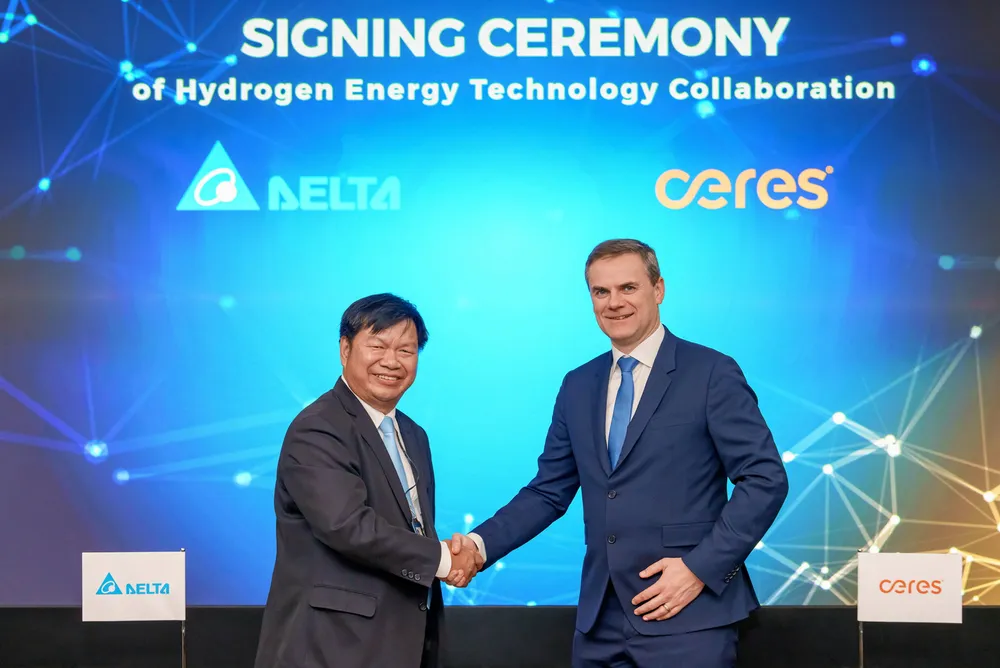While other electrolyser manufacturers plan massive factory expansions, Ceres takes low-risk licensing option in Taiwan
Delta Electronics will integrate the licensed technology into its own products, to be manufactured from 2026

Delta Electronics will integrate the licensed technology into its own products, to be manufactured from 2026
